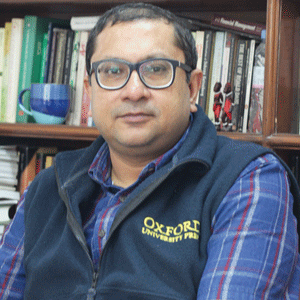'A different language is a different vision of life!' - Federico Fellini
 The Indian Languages Publishing Programme is an exciting new initiative of Oxford University Press (OUP) India! The programme, to be launched in 2018, will publish books in some of the major Indian languages, beginning with Hindi and Bengali and to be followed by works in other languages. The books published under this programme will comprise new titles in local languages as well as translations of our existing titles in both print and digital formats.
The Indian Languages Publishing Programme is an exciting new initiative of Oxford University Press (OUP) India! The programme, to be launched in 2018, will publish books in some of the major Indian languages, beginning with Hindi and Bengali and to be followed by works in other languages. The books published under this programme will comprise new titles in local languages as well as translations of our existing titles in both print and digital formats.
India is a multilingual nation communicating in more than 23 languages and over 150 dialects. As an English-language publisher, we have been disseminating quality academic and knowledge-based resources, but we are able to cater to only about 10 per cent of India’s total population—the section that is proficient in English—thereby excluding a significant number of people who communicate in India’s indigenous languages. Being an internationally renowned academic press, with a long history that can be traced back to the earliest days of printing, OUP is recognized for its contribution to scholarly research and disciplinary development. To take this success a step forward, we now wish to embrace scholarship that is developed in regional languages. It will be unfortunate if we remain limited by language and refuse to recognize the need to expand our publishing horizons in keeping with the requirements of our readers, students, educators, researchers, and scholars. Socio-politically too, India is seeing an upsurge in the demand for the indigenous and the local. Given this current context, it is inevitable that demand for resources in local languages will only grow.
A large population of young students, researchers, and scholars today are comfortable in practicing their disciplines in Indian languages. Vibrant networks of government-aided schools using Indian languages as their medium of instruction are a big impetus behind this upsurge. Competitive exams as well as entrance examinations to schools and colleges are set to be conducted in more than one Indian language to make available a level playing ground for students from diverse socio-economic backgrounds. Debates around the language question have always been fraught with politics in our country. The gap in socio-economic, cultural, and political representation between majority and minority languages has been under critical scrutiny given the recent recommendations of the parliamentary committee on official languages to make Hindi compulsory for students of classes 1–8 in all CBSE schools.
Owing to these developments, Indian languages today are becoming ever more democratized by helping give voice to the less privileged in our society. There also exists a substantial interest among social scientists to develop their disciplinary knowledge in the Indian languages. This includes not only translating English knowledge resources in Indian languages but also developing ways of thinking that are rooted in these languages.
Oxford University Press India has had a notable presence in India for the past 100 years and has played a major role in the country’s education sector by disseminating its excellent collection of scholarly publications. The domain of our publication was until now limited by language. To chip away at this language barrier and to build a publication programme that serves the need of our readers, we have invested our resources in the first phase in making available translations of not only our classic books but also important recent publications. Some of the books in this list include India’s Ancient Past by R.S. Sharma, Asoka and the Decline of the Mauryas by Romila Thapar, and India’s Foreign Policy by Sumit Ganguly in Hindi and History of South India: From Prehistoric times to the Fall of Vijayanagar by Nilakanta Sastri, Democracy and Its Institutions by André Béteille, and Defining Moments in Bengal, 1920–47 by Sabyasachi Bhattacharya in Bengali. We are also translating two popular titles from Penguin Random House—Half-Lion: How P.V. Narasimha Rao Transformed India by Vinay Sitapati and Batles Half Won: India’s Improbable Democracy by Ashutosh Varshney. We are painstakingly reviewing every translation to ensure that we offer our audience a lucid reading experience. Our forthcoming titles too will adhere to the same rigorous process of peer reviews as all our academic books do.
Print versus digital is a never-ending debate in our publishing era. The balance rarely tips one way or the other and more often than not print and digital coexist. Digital and print books together constitute the publishing ecosystem and one cannot survive without the other. Readers today overlap their reading experiences seamlessly into both these formats thereby extracting the best of both worlds. Given this scenario, publishers too are making every effort to offer their content in diverse electronic formats, making access considerably easy. Our Indian language programme is also guided by this experience and is geared towards making language resources available across diverse digital mediums.
By publishing in Indian languages today, we aspire to make an important contribution towards fulfilling the Press’ mission of making quality scholarship and research available to as many people as possible. Additionally, being aligned with the objectives of the Oxford Global Languages programme—which is a major initiative from our Dictionaries division that aims to build lexical resources for 100 of the world’s languages and make them available online—the local-language publishing programme that we seek to develop and build in India shall not only be a timely step in the right direction but also a natural extension of OUP’s existing publishing programme.

